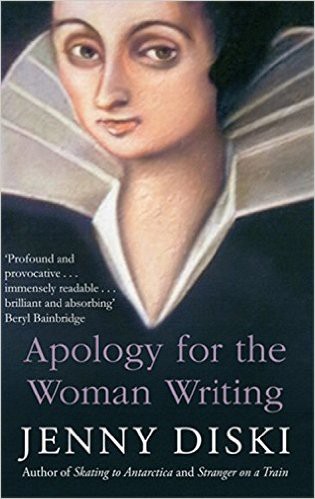Why Can’t People Just Be Sensible?

In my mind’s eye, I have Peter tucked head first under Doris’s free arm, as if he were swimming down to land, but kept safe in his mother’s clutch. In the other hand she held the sort of small, shabby suitcase that pulp fiction illustrators give to people running away from their lives — to heroines with gumption, or plausibly handsome yet morally flawed young men. The suitcase holds the protagonists’ future. The man uses his free hand to get ready to light a cigarette, pulling a silver cigarette case from his pocket. The woman obviously doesn’t have a free hand. Her suitcase holds a few bits and pieces of clothing that are quite unsuitable for the new climate in which she will be living, but the manuscript of that first novel takes up most of the room. It will turn out to be the beginning of a career that ends not long after she wins the Nobel Prize for Literature. In the male version of the suitcase I’d guess at several shades of silk stocking samples, one of which will probably be used to strangle the life out of some lonely but restless woman, who at the moment hasn’t the slightest idea of the man descending the steps to try his luck in postwar London. There might even be an inset, a small cameo of her in a neat shirtwaister, looking through the kitchen window, out onto a neat garden, thinking of something far away while she does the washing up.
I mention these two puffs of fantasy to emphasise that I’m not attempting anything like a biography of Doris or Peter Lessing, still less my own autobiography: I’m writing a memoir, a form that in my mind plays hide and seek with the truth. It contains what I imagine and what I remember being told. Absolute veracity is not what I’m after.
The latest in Jenny Diski’s memoir series for the London Review of Books is now available online, even if you don’t have a subscription or a Bad Friend who will copy and paste the entire text and send it to you because they know you do not have the patience to wait for a paywall to come down. “Absolute veracity,” as Diski puts it, is not what you’ll get, although up until this instalment it hadn’t occurred to me that maybe she’s been deliberately avoiding it, or at least deliberately not concerning herself with it.
Here, Diski writes a detailed and in-depth account of the death of Lessing’s biological son Peter, a character who I’d never considered very much in earlier essays. She mentioned him every so often, but because I trusted Diski I never thought to ask for more. I figured he would appear when the time was right, or, as the ultimate authority on her own life, Diski had rated him as unimportant and wouldn’t examine his presence. I was wrong on both counts. It’s very, very sad, but very, very good. Read the entire essay here.